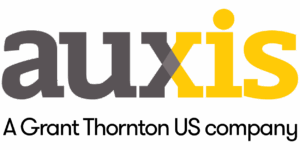So, you have determined that implementing an agile DevOps framework and related business processes is the best strategy for your organization. The benefits are clear after all ̶ faster time-to-market for new applications and services, better cross-team collaboration, increased organizational efficiency and higher quality code. As we noted in a previous blog, however, making the move to agile is not as easy as it may seem, and the transformation requires more than just deploying technology and finding the right talent. Rather, you need to approach DevOps as an ongoing journey and build these new capabilities into your organization systematically to align IT initiatives with your overall business strategy.
What are the end goals?
In short, the DevOps transformation should enable your organization to provide continuous improvement of applications and services through automation, process improvement and a complete cultural overhaul of the organization. Breaking it down further, IBM has identified six key capabilities that you need to adopt to make a successful journey, including:
- Continuous business planning
- Collaborative development
- Continuous testing
- Continuous release and deployment
- Continuous monitoring
- Continuous feedback and optimization
At first ̶ and understandably ̶ this may seem overwhelming, leaving you scratching your head about where to possibly start. However, if you approach the journey to DevOps in a systematic way, you can achieve success.
Step #1 – Implement Governance
Many organizations still face significant challenges in the journey to DevOps, and all too often we find that they have forgotten the critical first step of implementing governance into their strategy. Becoming an agile DevOps organization requires careful consideration of how the transformation will affect every aspect of the organization and a clear vision of what you want to achieve, and ad-hoc, departmental efforts simply won’t work. Rather, a sound governance strategy should cover organizational, financial and operational requirements, and the process must be designed to be repeatable, as the DevOps journey is not just a one-off deal, but an ongoing process to facilitate continuous improvement. Steps in the methodology we recommend include:
- Organizational – Define your business services and the organizational roles to deliver those, and break down the traditional silos between development and operations. Then, you should create SLAs to guarantee those and determine the hours of operation required to support your business services and applications.
- Financial – Define your budget for R&D, custom development (if you will provide that); business support, operational support, network, security (cyber and physical) systems; and, IT operations. Then you can wrap up the process by creating procurement methodologies that will support financial governance.
- Operational – Define the processes, procedures, and policies that govern “how” you will operate and “who” will operate critical functions. This requires aligning your business goals across your entire organization to ensure that continuous integration and development are achieved.
Still feeling intimidated? There’s help!
Make no mistake, the journey to DevOps is a major one, and if not done carefully, it will ultimately fail. By working with a managed service provider with a team of DevOps experts, you can get up and running in a fraction of the time it would take to do it in-house. The fact is, your customers and partners alike demand more in today’s cloudy and rapidly changing world, and any delays in delivering the products and services they have come to expect will send them off to your competitors. An MSP can work with you from the beginning of your journey to implement the best technologies, business practices and processes, and ensure that you provide continuous improvement as your business requirements inevitably change. More importantly, by leveraging the technical and procedural expertise a qualified MSP can provide, you will have more time to focus on strategic initiatives and grow your business.

